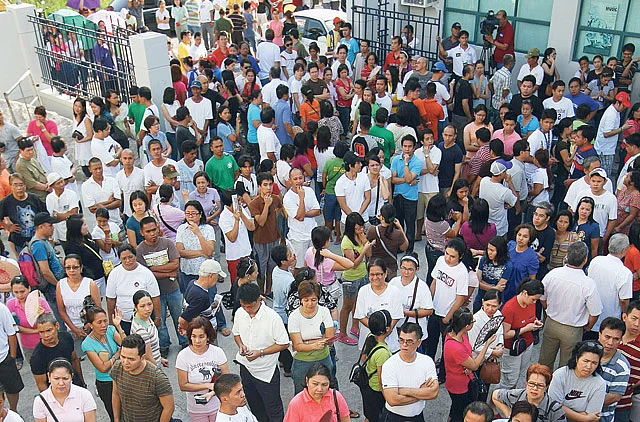Philippine President Arroyo braces for transition
Philippine President Gloria Arroyo prepared for a transition government as election frontrunner Senator Benigno "Noynoy" Aquino III predicted his victory in the country's first automated polls that recorded an 85 per cent voter turnout

Manila: Philippine President Gloria Arroyo prepared for a transition government as election frontrunner Senator Benigno "Noynoy" Aquino III predicted his victory in the country's first automated polls that recorded an 85 per cent voter turnout.
"There is no more important legacy than to leave the nation with a free and fair elections and smooth transition to a new government. Our people deserve to have confidence that their vote counts and that our democracy works," said Arroyo who voted in her hometown in Pampanga province in central Luzon. She is aiming for a seat to represent her hometown at the House of Representatives.
"Let us do everything to make sure the new president and his team hit the ground running when they assume office," said Arroyo, adding she has created a transition committee headed by Executive Secretary Leandro Mendoza to usher the incoming administration.
"Once the electoral noise settles, we should unite behind whoever is chosen by the majority and give him our full and wholehearted support," said deputy presidential spokesman Gary Olivar.
Arroyo's term ends on June 30.
Arroyo ruled for nine years, including from 2001 to 2004 to finish the term of deposed president Joseph Estrada. After her election for six years in 2004, she was criticised for alleged election fraud in 2005, but economists and international observers praised her for keeping her country's economy unsullied by the recession that affected developed countries in 2008.
Forecast
Liberal Party presidential candidate Benigno "Noynoy" Aquino III predicted he would get an estimated 8.45 million votes.
His forecast is also based on two pre-election survey of Pulse Asia and the Social Weather Station, in which he obtained a 42 and 39 per cent voters' preference rating.
Aquino was predicted to obtain a landslide victory, bigger than the 39 per cent that former president Joseph Estrada mustered during the 1998 elections, observers said.
"Massive cheating is the only way I would lose," said Aquino. "The dawn is near. The people are hungry for a new leadership."
Earlier in the day, Aquino queued for five hours to cast his ballot vote as the counting machine in his polling precinct in his hometown in Tarlac province malfunctioned.
Election day violence
At least a dozen people were killed across the country as a result of election day violence.
Most of the casualties were in the main southern Philippine island of Mindanao and were the result of partisan violence between rival armed groups or from clashes with authorities.
In Maguindanao, three militia members of were killed following a clash between the followers of Mohammad Ali Santiago Guro and Farida Lidasan Ampatuan who are standing for vice mayor in Matanog town.
In Northeren Paguntalan, Kapimpilan town, armed supporters of the mayor tried to prevent people from voting prompting the Army to send in troops. The clash left two members of the mayor's supporters dead.
There also reports of mortar shelling and a grenade attack in certan areas in the province.
In Kidapawan, North Cotabato, armed followers of a congressman Bernard Piñol clashed with soldiers, leaving one civilian killed.
"Although there were sporadic incidences of violence, the elections proceeded as scheduled and the people were able to exercise their right to vote," Hao said.
Sign up for the Daily Briefing
Get the latest news and updates straight to your inbox
Network Links
GN StoreDownload our app
© Al Nisr Publishing LLC 2026. All rights reserved.